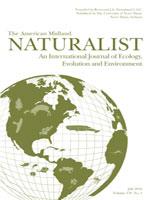Detailed baseline inventories provide the foundation for the conservation of biodiversity. This fundamental knowledge, however, is lacking for lichens in southwestern Ontario. As a result we selected Awenda Provincial Park for a lichen survey because of its diverse and uncommon mesohabitats likely to contain previously unreported species, such as its 285 ha old-growth deciduous forest and its Quercus-Pinus savannah. Two hundred and three species were discovered in 96 genera. Four species are reported as new to Ontario: Abrothallus caerulescens, Bacidia kekesiana, Cheiromycina flabelliformis, and Lecanora minutella. Thirty-five species have a provincial conservation rank of S1 (critically imperiled), S2 (imperiled), or S3 (vulnerable). The five species that are ranked S1 are: Acarospora sinopica, Acrocordia cavata, Anisomeridium biforme, Chaenothecopsis savonica, and Leimonis erratica. Our results illustrate the conservation importance of Awenda and contribute to a better understanding of the distribution and frequency of lichens in Ontario. This baseline data can be used to apply conservation status ranks with more accuracy and monitor changes in populations caused by climate change, air pollution, or other disturbances.
How to translate text using browser tools
1 July 2016
Lichens and Allied Fungi of Awenda Provincial Park, Ontario: Diversity and Conservation Status
Richard Troy McMullin
ACCESS THE FULL ARTICLE
It is not available for individual sale.
This article is only available to subscribers.
It is not available for individual sale.
It is not available for individual sale.

The American Midland Naturalist
Vol. 176 • No. 1
July 2016
Vol. 176 • No. 1
July 2016




